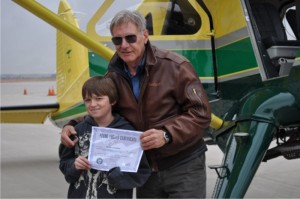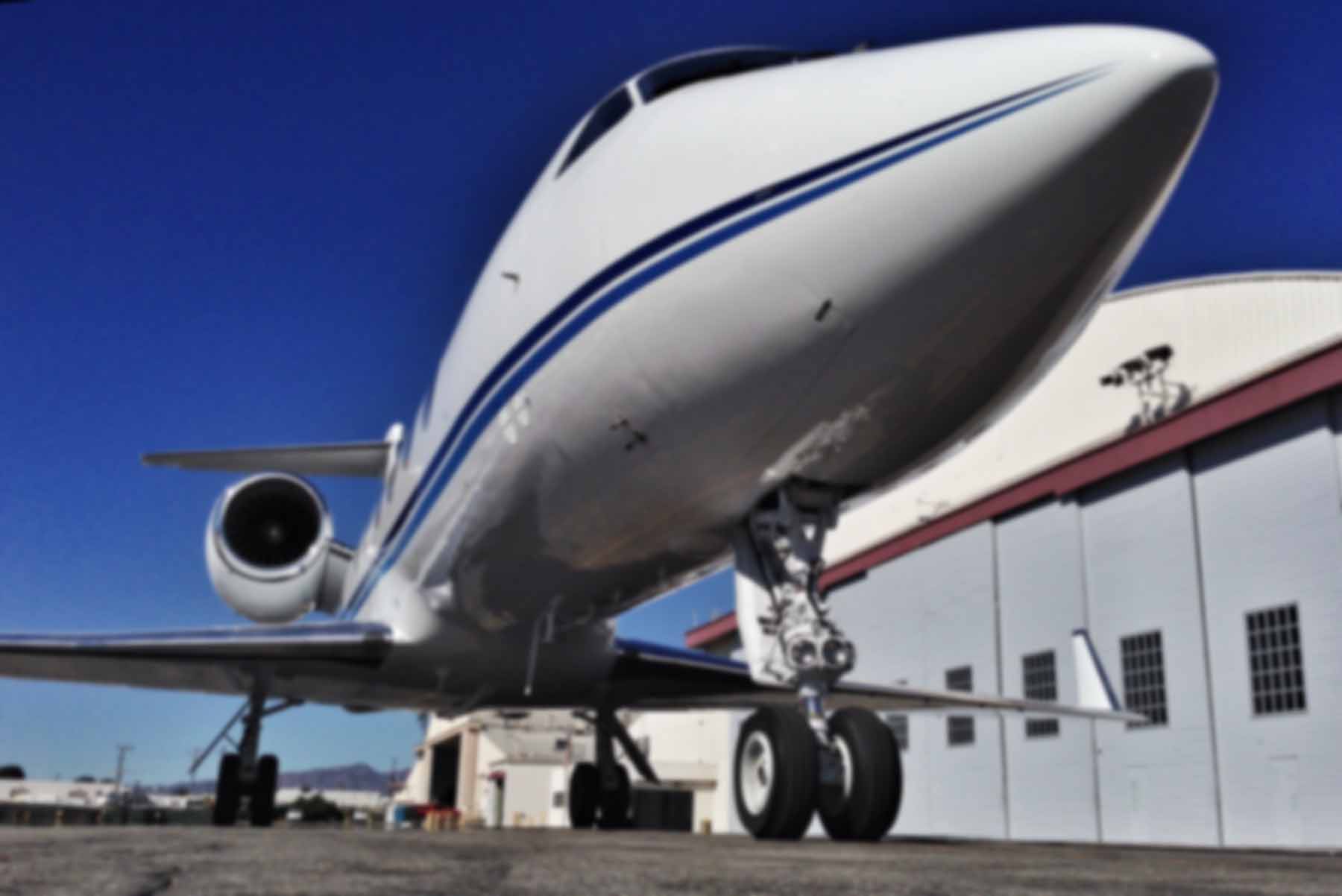Normally I’m a fan of the JetWhine author Scott Spangler, but a recent article lamenting how much worse off we are than 40 years ago is truly perplexing. While I certainly understand his frustration at the high cost of flying, I’d expect a better understanding of economics from those who are involved in the expensive end of business aviation.
We demand a level of safety, comfort, and security today which far exceeds that of the early 70s. Between litigation, regulation, and new technology, the cost of flying was bound to be higher today than it was in the foggy memory of the so-called good old days. As for middle-class incomes, his argument centers on the detrimental effect of “rich people”, something I can’t help but take issue with.
What pulled me under was the realization that, for the most part, rich people don’t invest the time and effort needed to truly accomplish something hard, like climbing Mount Everest or flying a plane. They hire someone to take them there by the hand or in the back seat. This confirmed a dark notion that’s been lurking in my subconscious, unless we revive the middle class and restore the economic vigor it exercised three or four decades ago, general aviation as we’ve known it is doomed.
First of all, “three or four decades ago” was the 1970’s and early 80’s — the era of Vietnam, high inflation, the energy crisis, Mideast turmoil, political upheaval, the long decline of the American steel industry, and more. Is that really what we want today? Spangler is the first person I’ve ever heard refer to the 70’s as an era of “economic vigor”.
Secondly, general aviation is not doomed. It’s simply changing. Instead of a certificated aircraft, people are voting with their wallets and moving into the Experimental-Amateur-Built category of GA aircraft. Van’s Aircraft designs alone account for as many airplanes produced each year as all the commercial builders combined.
It’s not by mistake that this is happening. Aviators are realizing that can get better performance for far less money when the government stays out of it, and the result is 500 new airplanes produced this year, one by one in garages around the country. That’s the product of a middle class he denigrates as un-thinking.
As commenters have mentioned many times here in JetWhine, GA flying is too expensive. That’s one way of looking at things.
It’s definitely too expensive. But then again, if JetWhine had existed in any other decade of the 20th century, a poll of readers would have revealed that it was too costly during that period as well. As I’ve previously noted, aircraft have been expensive to operate since the day the Wright brothers invented them.
Another perspective is that the cost of flying has increased like everything else in life—except middle class incomes. Those have been essentially stagnant since the late 1970s, when the middle class stopped thinking things through and bought into the trickle down delusions that have made rich people exponentially wealthier.
Maybe it was fate, but after reading the Times travel article I stopped by my favorite (and most literate) blog, The Rumpus, which says, “Inconsistency is human, but try to be nice.†In The Week in Greed #13: The Speech Obama Didn’t Give, Steve Almond outlined a workable plan for restoring the middle class. Not that it will ever happen, mind you, but it was nice to dream for a second.
But you never know. Maybe there’s enough residual critical thinking among us to ask not if we’re better off now than we were four years ago, but whether we are better off today than we were 30 or 40 years ago. Back than I was in the Navy, before it went all-volunteer and started paying real money—and before the trickle-down delusion started siphoning off its purchasing power. Back then I could afford to fly. Now it’s still a dream that will probably never be realized again.
If that’s his mindset, then yes, he’s probably done flying. On the other hand, I’ve known individuals who overcame heart transplants, serious brain surgery, the loss of multiple limbs, an eye, even their sense of hearing, and who got back into the cockpit. I had a student who literally had no address — he couch-hopped and rode a bicycle in order to save enough to fly. Later on he got hit by a car on his way to the airport, and even that didn’t stop him.
I’ve known a wide variety of individuals in my life, many of them through aviation. The most dedicated and hard-working among them were also the most successful financially. I’ve also found them to be some of the nicest and most generous people I’ve encountered. Even among those who were light on the yen, with enough determination I’ve seen them accomplish amazing things.

From manufacturing to finance to doctors to engineers, it runs the gamut. I’ve trained dot-com legends, brain surgeons, entrepreneurs, titans of Wall Street, Hollywood directors, and plenty of people who were “ordinary Joes” like you and I. I’ve never gotten the impression that rich people — regardless of whether I’ve known them in the aviation world or from “the outside” — didn’t work damn hard to build their success. And lately, that they haven’t worked even harder just to keep it afloat.
I’ve gotten to know many of them on a personal level, and they get up earlier, work later, stress more, and sleep less than I do. They take critical phone calls and emails at all hours of the day and night. I don’t envy them at all in that regard. Their lives are complex, myriad people depend on them, and they seem to work 24 hours a day.
Finally, I look at the fact that I wouldn’t have a job without them. I don’t understand the vilification of these individuals. They hire the Gulfstream I fly. They indirectly employ the mechanics, charter personnel, line guys, flight attendants, pilots, catering companies, airframe manufacturers, outfitters, flight training companies, and many other people. Because of them we use hotels, eat at restaurants, rent cars, buy fuel, pay taxes, hire handlers and drivers. And those aren’t even their direct employees.
When one takes the time to add up the economic effect of just one of these flights, it’s astronomical. The dollars are flying out all over the place, and some of those greenbacks literally put a roof over my head.
I read the Rumpus article that Spangler references and it’s hard to believe anyone would champion those ideas. Triple the salaries of teachers? Please. The Chicago strikers, who make an average of $76,000 per year already, come to mind. While I have the greatest respect for educators, isn’t $228,000 a year a bit much for nine months of work? No matter what I fly, I could never approach that level of income and get a quarter of the year off.
The last time I checked, the state of California was already spending the vast majority of it’s badly overxtended budget on education.
I’ve known a few pilots who make that kind of money, but they do other things in addition to flying. They’ll broker trips, manage aircraft, assist in the sale or purchase of an aircraft, and so on. They are entrepreneurs themselves, in fact.
As for the proposed 90%+ tax rate, that would assuredly put me — a pilot — out of work. It would destroy the business aviation sector and the millions who depend on it for their livelihood.
Perhaps instead of calling for the financial heads of those “fat cats”, we should be looking closely at their success to see how we can replicate it. At the end of the day, though, it’s probably a message many Americans don’t want to hear: decades of hard work, unstoppable determination, years of experience and learning from a variety of inevitable failures, continuous networking, better-than-average creativity and problem-solving, and yes, a fair bit of luck.
Is it possible there’s another reason that our economy is suffering? Another cause for the middle class malaise? I try to avoid delving too much into politics here; there are plenty of other places on the internet for that sort of thing. I can only say that when it comes to the wealthy, my family and I do not see them as the enemy.
From my days in the opera and theatre world to my time as a full time CFI to my current job as a charter pilot, they’ve been a critical part of putting food on the table and keeping the lights on, and I say thank God for ’em.

Good post! I might add that I have never been offered a job by poor people, only by well off people who have worked their butt off to be successful enough to need employee’s.